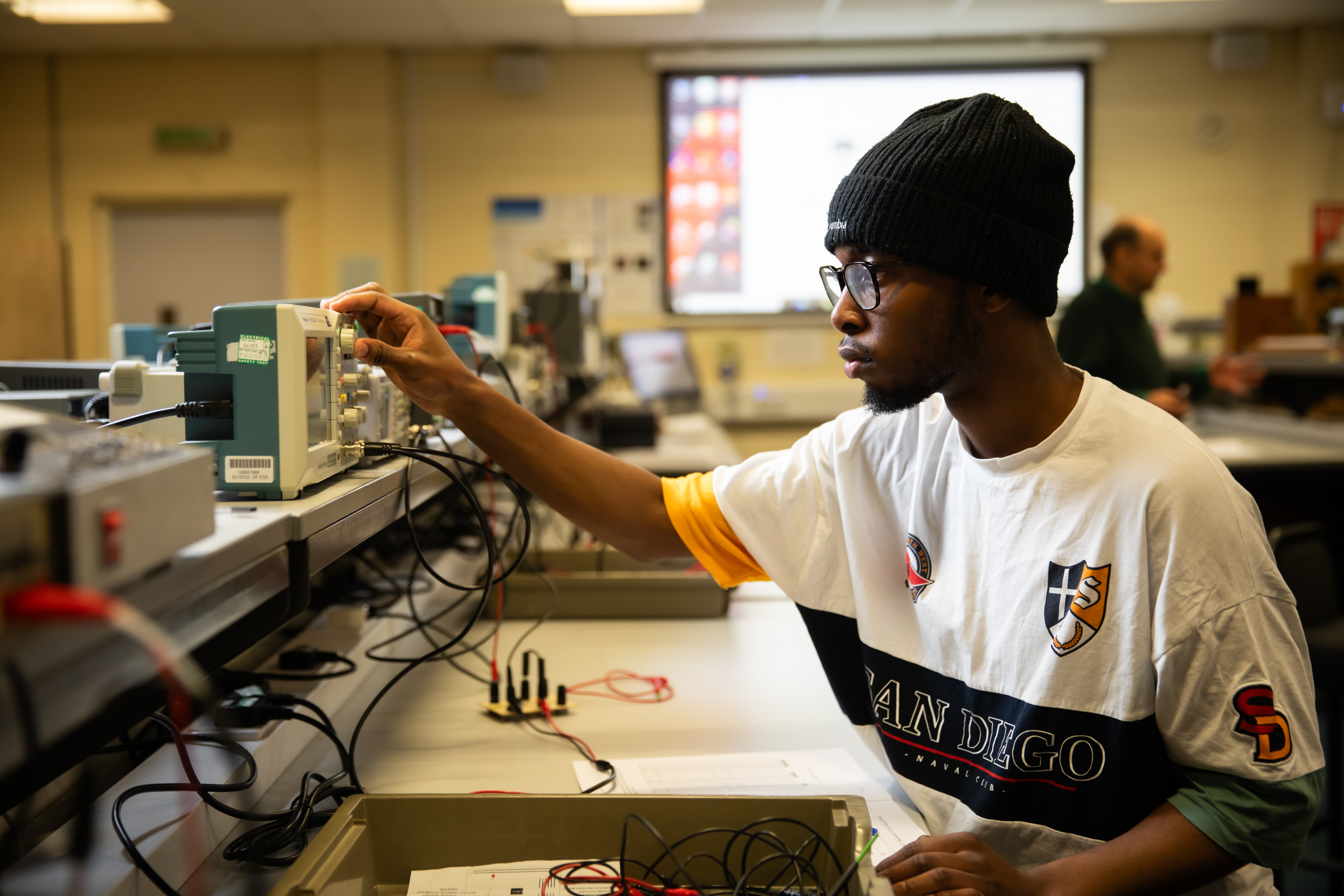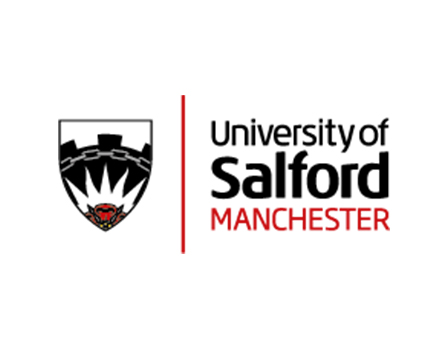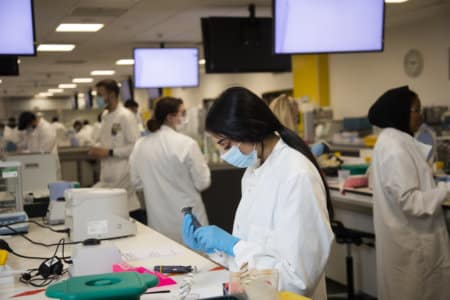Picture this: a cubed pod that looks like a tiny home on the street as a haven for the unhoused. It’s accessible and gives people who are homeless a place to safely reside in the night. And it’s energy-efficient, meaning it’s good for the planet too.
That’s what researchers at the University of Salford worked on, having partnered with homeless charity Emmaus Salford and construction firm Casey, in their Energy House Lab 2.0. It houses two environmental chambers that simulate over 95% of the world’s climate, and mimics different weather conditions. At the £16 million facility, the largest global test and research facility of its type, researchers have put a prototype pod through a series of tests so more pods can be refurbished to the highest standards for the people who will be using them and for the planet.
That’s Salford for you. It starts with a solution, and then impacts the community in ways that are both innovative and transformative, driving positive change.
When you pursue a postgraduate degree at Salford’s School of Science, Engineering and Environment, being challenged with industry projects comes with the territory. Students get to work with pioneering organisations and renowned stakeholders. Graduate student Ataa Al-Taee Yasari knows this like it’s second nature. Whilst studying MSc Drug Design and Discovery, they have worked on projects for partners such as AstraZeneca and Kidscan.
“It helped me develop my ability to interact with real-world professional clients,” Al-Taee Yasari says. “And provided me with the opportunity to consolidate and apply the knowledge during classes to a team-based approach to real problems.”

Many students conduct research in the Bodmer Labs, where they have access to advanced equipment to find new outcomes. Source: University of Salford
Learning by dong, the SEE way
The university is one of the founding members of the Greater Manchester AI Foundry, a programme that supports Greater Manchester SMEs to innovate and grow by connecting them with cutting-edge AI research and knowledge. This means students confront AI research and application in their industry work, especially in areas that Salford specialises in, such as Cost Sensitive Data Mining and Immersive Data Visualisation.
Over at The North of England Robotics Innovation Centre (NERIC), Salford is working on expanding another area of expertise: robotics and automation. This is where the university’s experts work with SMEs looking to design, test and validate innovation. Meanwhile, the Bodmer Labs is a sleek and minimal space stacked with loads of technology on par with the industry. These include cell culture facilities, FACS, MALDI-TOF, LC and GC mass spectrometry, FTIR and FTNMR spectroscopy, fluorescence spectroscopy and microscopy, and scanning electron microscopy.
“The university has lots of specialist project labs, cutting-edge computer sites and industry-used online tools to which students have access,” says Arunima Sagunan, an MSc in Artificial Intelligence student. “This helps in applying AI to real-world scenarios and helps you to understand what it would be like to work in the sector.”

A sneak peek into the SEE building where students have access to a multitude of project labs, and a space that’s welcoming to all. Source: University of Salford
And through attending Salford’s career fairs, Sagunan is getting another glimpse into her future career: a summer internship. It’s a collaboration with industry that will form part of her dissertation. This circles back to what’s integral to Salford at the very core — proactive research that makes a difference in the real world. Every area of the university reflects that, and especially in the programmes they offer.
Case one, robotics. Like the way AI tends to ease those tedious, day-to-day online tasks, robotic intelligence delivers the same and potentially more. Experts are constantly innovating new ways for robots to help us with tasks as personal as cleaning the house to a straight-up medical revolution. The MSc in Robotics and Automation programme gives you the grounds to achieve that, thanks to modules that train you to interpret neural networks, develop virtual reality applications, and more.
Case two, science. The MSc Biomedical Science is led by internationally-renowned academics with track records in world-leading research. They bring years of experience and the latest insights on personalised medicine, targeted therapies and medicine. Working with students, they explore how we can move away from a “one size fits all” treatment and care of patients with particular conditions.
The final case, data. To become a student of the MSc Data Science programme, you don’t need to be entirely deft at the subject. As it was developed as one of the UK’s first data science postgraduate conversion courses, this Chartered Institute for IT (BCS) accredited degree welcomes graduates and professionals from a wide range of disciplines with analytical knowledge and applied programming skills. Together, you’ll develop an awareness of the latest developments in databases, data mining, machine learning and Big Data, work with real-world messy data and gain experience across the data science stack and broaden your mathematical aptitude as you explore Big Data, machine learning and data visualisation.
And those three cases are certainly not all Salford has to offer in terms of their programmes. If you’d like to check out more, the research they’ve conducted, or get a virtual look into the new SEE building — click here.
Follow the University of Salford on Facebook, X, Instagram, and YouTube.













